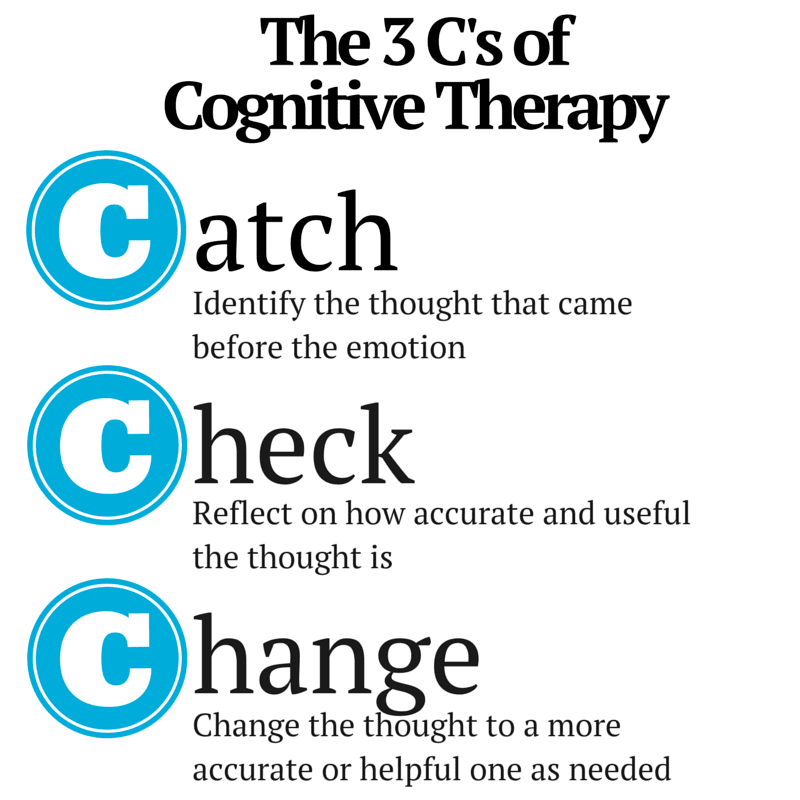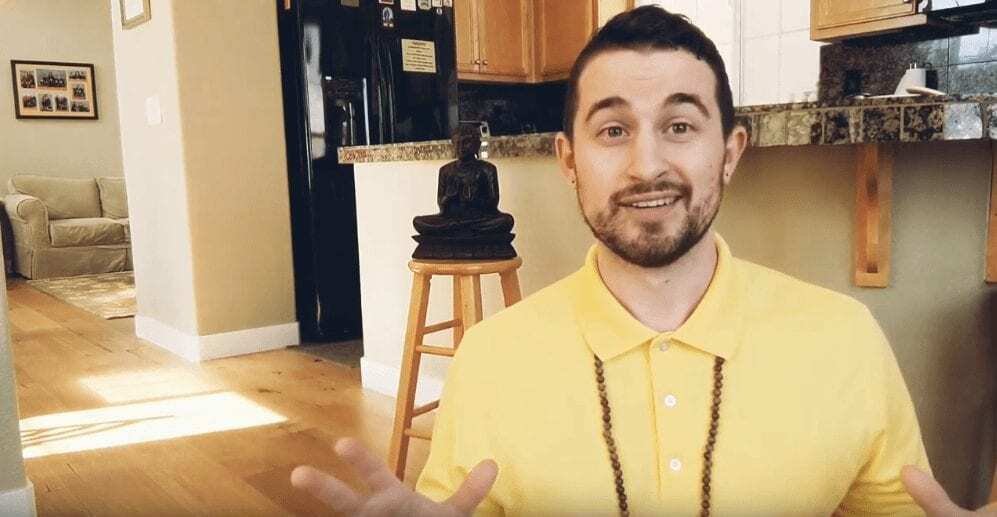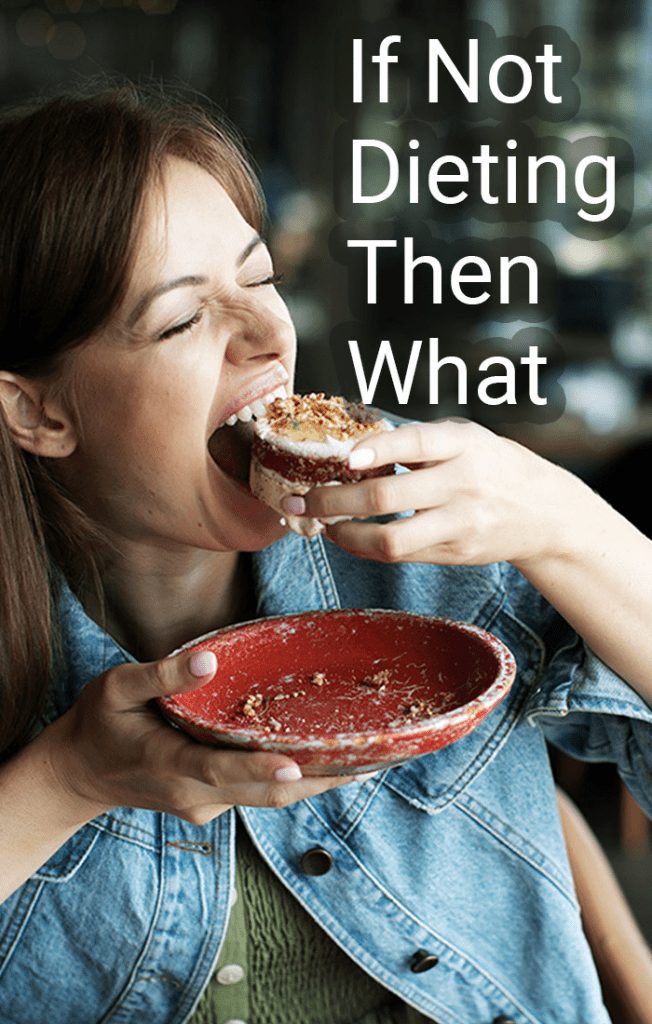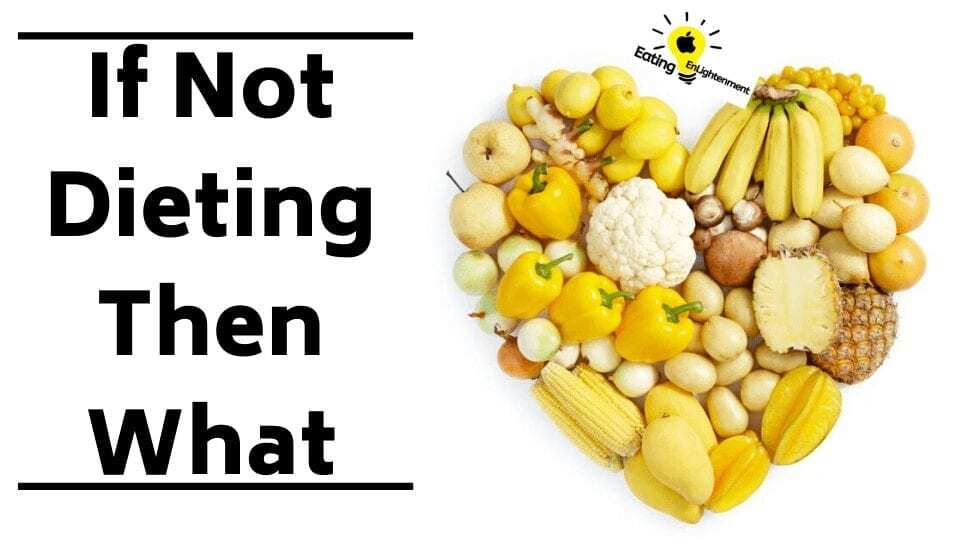Willpower is notoriously fickle. In Rick Kausman’s book “If not dieting, then what?” Rick talks extensively about avoiding the willpower trap.
The willpower trap is simple. We all have experienced willpower dropoff.
You start motivated, then one day, your motivation is gone.
In this post I take some of Rick’s thinking and mix in my own perspectives on Cognitive Behavioral Therapy. I also talk about willpower in context of both eating and relationships.
Here are 3 steps based on Rick Kausman’s “If Not Dieting Then What” strategy to change your eating and relationship patterns without using willpower:
1 – Understand Your Beliefs – your behavior is being unconsciously controlled by subconscious beliefs. The first step is simply discovering what your subconscious mind believes.
2 – Question Your Beliefs – after coming up with some ideas as to your subconscious beliefs, now you challenge, identify how current beliefs are black-and-white, identify how current beliefs help and harm, and question these beliefs.
3 – Write Out A New Gameplan – after coming up with more realistic versions of your beliefs, now it’s time to write out how you will take action the next time a situation occurs.
Rick Kausman’s If Not Dieting Then What Backstory
Here’s why I got motivated to write this post.
My friend recently contacted me with a huge problem, which I’ll describe more below.
In essence, I felt his pain. In response to his pain, I knew deep down in my core that I had to respond to his pain.
See, I knew my beliefs. I am aware of my belief patterns. I’ll talk more about belief patterns down below, but just so you know …
Changing your beliefs is the willpower-friendly strategy to change your relationships and eating patterns.
Now let’s take a look at my friend’s situation and what was causing him so much pain.
His voice sounded incredibly sad, frustrated and full of pain.
“This keeps happening to me! I keep letting people take advantage of me! People say they need money. They plead. They beg. Total strangers, I don’t even know these people, but they can sense somehow I am vulnerable, and so I give them my hard-earned money.
I keep doing this. Last month I gave away most of my earnings to total strangers – and this is not the first time I have done this. I know I should stop, but I just don’t have the willpower”
So my friend is having major painful trouble saying “No” to people.
He reached out for help.
And immediately after hearing his message I had a light go off in my head!
This is where the connection to Rick Kausman’s If Not Dieting Then What book comes from.
Because I suddenly remembered another woman nearly weeping over her struggles to stop dieting.
Her voice seemed similar … She said something like …
“I just can’t stop dieting. I am addicted to dieting. These different programs … they all tell me I’ll lose weight. They all show me beautiful pictures of people who have taken the program. The problem is none of the programs work for me. I don’t lose weight anymore. I don’t want to diet. But I just can’t stop. I always gain the weight back too. It’s the most frustrating, saddening thing in the world. So … If not dieting, then what? I don’t’ know. I don’t have the willpower to stop dieting.”
So this woman’s problem was dieting. My other friend’s problem was setting boundaries in relationships.
In both of these cases, my friend and this woman had identified patterns they desperately wanted to change, but couldn’t.
No matter how hard they tried, they simply found themselves again in the same painful situation.
This is what Rick Kausman’s If Not Dieting Then What book is all about. The willpower trap.
This is where the non-willpower approach comes in. It’s based off Cognitive Behavioral Therapy.

There are a few reasons why I love Cognitive Behavioral Therapy (CBT).
First, CBT is simple. CBT is based on the realization that it’s our subconscious beliefs which drive our behavior.
So deep down, secret, hidden beliefs are the reasons my friend keeps giving away is money and this woman keeps dieting.
Second, CBT is easy for someone to use on by themselves. With CBT, you can do much of the work by yourself. This is great if you’re on a budget!
True, in CBT you do have to keep a journal and spend some time thinking and questioning and digging deep … but at the end of the day … you can do much of the work by yourself with a journal.
And I am huge on self-empowerment!
Most of my blog articles contain helpful information and exercises to actually give you actionable steps to take to solve your problems, I definitely feel drawn to a practical approach like CBT.
Third, CBT is highly effective. There’s been no other therapy studied empirically with double blind placebo controlled studies than CBT. So it works and we know that!
Now one shortfall of CBT …
Is CBT doesn’t tell you where or how you got these beliefs.
You might discover that deep down you have this belief that “I am worthless” and another belief that “If I help people monetarily then I am a good person.”
CBT can help you see how your subconscious mind believes these beliefs. By seeing what your subconscious mind believes, you can then modify your beliefs by forming more realistic beliefs.
For example, after journaling and questioning these beliefs (more on that later down below) you might realize that “I am not totally worthless, I have strengths and abilities that I just sometimes forget about” and that “Giving money can help me feel good about myself, but giving money can make me feel horrible about myself as well.”
Now these beliefs are more accurate. That’s the whole point of CBT. We want more accurate beliefs.
But … where do these beliefs come from? Why do you think you need to diet? Why do you believe that giving money is a good thing and that if you don’t give money you are a bad person?
CBT doesn’t get into the origin of these beliefs. It just deals with the beliefs.
Also, Rick Kausman’s If Not Dieting Then What book doesn’t specifically address CBT.
This article is inspired by Rick, but most of the content comes from my own training and experience working with CBT, personally and professionally.
Now the heart of CBT is understanding these 3 things – beliefs, emotions, feedback
Here is another picture of the CBT process, with more detail:

So now let’s use these CBT models to understand our 2 behaviors:
⦁ being driven to diet and
⦁ being driven to give away money
How To Use CBT to understand and change your beliefs
When we first use the CBT process, we begin backwards.
We look at the behavior, then the emotions, then the beliefs.
And when we get to the beliefs, we have to guess. We have to hypothesize.
We gather evidence and clues about the potential beliefs based on
⦁ our past actions and
⦁ how we remember thinking and feeling before we acted.
Using these 2 clues we can guess and get a good indicator of our beliefs.
Remember, our beliefs are hidden. They are subconscious! While some beliefs you may easily discover, you might have to journal many times to really uncover your more powerful beliefs.
So let’s start with dieting:
Please keep in mind these two examples are extremely simple! If you are doing this on your own you’ll do better if you really think hard about ALL your thoughts and ALL your feelings.
You want to create detailed map of the feelings, thoughts and the situation so that you can understand WHY you took the action.
The value of CBT comes from helping people understand WHY they take action.
WHY is more powerful than Willpower. Willpower you have it some days, and some days you don’t.
WHY is much more powerful and long-lasting.
Again, do you remember my example above where I responded to my friend’s pain? This is based off a conscious belief of mine.
This is not willpower. You can’t rely on willpower to change your beliefs!
That’s the whole point of Rick Kausman’s If Not Dieting Then What book!
So let’s give some brief examples if these two problems:
Action – She purchases another diet program
Feelings and Thoughts Before Purchasing The Diet Program – feelings: anxiety, stress, feeling embarrassed about her weight, thinking: maybe this diet program will work, I need to lose weight
Beliefs – I need to lose weight, I am not good enough the way I am right now I need to lose weight in order for me to love myself or for other people to love me
And for giving away money:
Action – giving away money
Feelings and thoughts before giving away money: thinking – I am worried this person needs the money, I am worried that this person will die if they don’t get the money; feelings – I am feeling guilty, I am feeling afraid, I am feeling tight
Beliefs: I believe that if people tell me they are dying they are telling the truth, I believe that if people ask for help I must give them help, I believe that if I don’t help this person then something bad will happen to me
Now after identifying your beliefs you have to change your beliefs – somehow
Now … If changing your beliefs were as easy as reading this blog article, or Rick Kausman’s If Not Dieting Then What book, the world would have already been a much better place by now.

The fact is, changing your beliefs is difficult.
You may identify and come up with some pretty good ideas based on your actions.
You may realize that part of you believes you are a bad person, and that you must give money to other people in order to be a good person.
Or, that if you DON’T give money to someone who says they need money then you will be a bad person.
This is good. Realizing that you have strange, weird beliefs that subconsciously control your behavior is really important!
But now comes another important phase. You must now start to see how your beliefs are inaccurate or too simplistic or unrealistic.
This phase is known as ‘challenging’ or ‘checking’ your beliefs.
So how do we check or change our belief?
Here are four basic ways. They all involve thinking. They all involve asking yourself questions. So you really need to ask yourself these questions and come up with answers.
For example, the techniques here are just 4 basic ways. But there are many other ways you can approach the same problem. CBT is a vast field.
But now, let’s just dive into actionable steps.
So put down your phone. Get out your journal. And brainstorm some answers.
- Inaccurate
- Too Extreme
- Too Simplistic
- No Evidence
So let’s go through the dieting and money examples.
Inaccurate:
- Dieting belief – I need to be skinny to be happy – is this really true? Are there any other fat people in the world that are happy? Have you ever been happy as a fat person before?
- Money belief – if I don’t give money to someone who says they need help I am a bad person – are you really a bad person for not giving money? What about other people who don’t give money to strangers, are they bad people too?
Too extreme:
- Dieting belief – if I lose weight THEN I’ll finally get my ideal partner and job – losing weight may help you get an ideal partner and job, but does NOT losing weight have to hold you back?
This belief may be partially true.
When a belief is partially true, we don’t need to say that the belief is wrong. We just need to understand that it’s not FULLY True.
In this case her belief that weight loss is related to finding a job and partner is true, but she has taken her belief to the extreme. She is no longer dating, she is no longer applying to jobs. Her belief that she needs to lose weight FIRST BEFORE dating and finding a job is too extreme.
She can still try to date and apply to jobs, despite her weight challenges. She is taking things too extreme.
Too Simplistic:
- Money belief – if people ask for help it is my duty and my job to help them out – is it really your duty to help someone out? What if you donated some money to charity every month instead? Is it your job to ALWAYS help someone out?
No Evidence:
- Dieting belief – if I diet I will lose weight
and stay skinny – does this match your experience? Has dieting lead to
permanent weight loss? For most people they experience they opposite. Dieting
leads to weight gain. What is your experience been? What do you need to trust
your experience?
- Money belief – if I give someone money then they will use the money appropriately – just because you give someone money does not mean they will use it appropriately.
If you have a history of giving people money and then people have abused your money, you need to adjust your beliefs.
Likewise with dieting … the endless cycle of dieting is why Rick Kausman’s If Not Dieting Then What book was created!
Adjust your beliefs, don’t rely on willpower
You think that people are honest and sincere, but their actions are not. Your beliefs do not match your experience.
Some people do need money. But how can you tell this person won’t just take your money and run with it. Do you give money to homeless people all the time? Why not? They are asking for money too.
So basically you have to sit down and see for yourself that you have some deep, hidden beliefs that are guiding your behavior …
And these beliefs are inaccurate or too simplistic!
I’ll share some of my own limiting beliefs too.

I instinctively believe that if people don’t respond to me, then that means this person is rejecting me.
Like if a person doesn’t return a call, or a text message, I think this person has abandoned me.
How do I know this?
I know this by examining my actions. Sometimes, not so much any more these days but I used to send too many text messages and get very upset if someone I barely knew stopped messaging me.
This usually would be a girl online. Here I am getting very upset this girl who I never met in person stopped messaging me.
Why was I getting so upset? Why did I care so much?
Well … my actions are sending text messages … the emotions I feel before sending text messages are very anxious …
So … my belief must be that I need approval and validation from women to feel good about myself.
This belief went very deep for me.
Was it accurate? Partially.
I do need validation and approval. We all do. That took me a long to even recognize, that needing validation and approval is okay. It’s part of being human.
But do I need to get validation and approval from women? And specifically single, attractive women on dating apps? No.
Could I give myself some validation and credit? Could I try to make more friends who could support me and give me validation? Yes.
So my belief, once I uncovered my belief, was too simplistic. Or too extreme. It was inaccurate.
So this leads us to step 3.
Step 3 is taking new action
The key word in taking new action is try.
You now know your belief is wrong, or inaccurate …
So now you have to take different action instead.
It’s not easy.
In fact, the first time you take different action (like not going on a diet or not giving someone money) you may feel very afraid.
You’ll have done some exercises to change your beliefs in step 2, and in step 3 you’ll have written out a new action plan.
However, when the next diet pops up or the next person asks for money, you may feel very afraid to not go on a diet or to not give someone money.
But the key is now you are acting from your values.
Remember, Rick Kausman’s If Not Dieting Then What strategy is about realizing willpower doesn’t work!
But the key is to try your new behavior.
Then see if the new behavior makes you feel better.
So in step 3, it’s very simple, just simple write out what you will do next time you are in the situation.
Be sure to actually write out what you will do. Don’t just simply think to yourself “next time I won’t diet” or “next time I won’t give that person money”.
No, literally write out….
“Next time I feel the urge to diet …” or “next time someone asks me for money …”
Then you have to fill in the blank.
Previously you were either buying a new diet or giving someone your money. Those were your old actions. But what seems better now?
I’m NOT saying that you shouldn’t try to lose weight.
I’m NOT saying that you shouldn’t give people money.
But … I am saying to examine your beliefs, modify your beliefs to be more accurate, and take more accurate action.
For example …
Next time I feel the urge to diet …I will research the diet first. I will apply to a job and see about online dating. If I wait for 3 days and still want to try this new diet then I will give myself permission to. I will also research alternatives that are cheaper.
Next time someone asks me for money … I will reply that I need to think for 24 hours first, because I have gotten in trouble before by giving money too quickly. Then, I may give this person money, but only after I sleep first.
I may also consider whether I should donate this money to charity instead, where I know with close to 100% certainty that this money is going to people who truly need the money and where I know that I am not being scammed.
So now you know the three steps of behavior change that doesn’t involve willpower!
Go ahead. Get out your journal. Go through these steps and leave a comment if it helps!
Good luck ?




